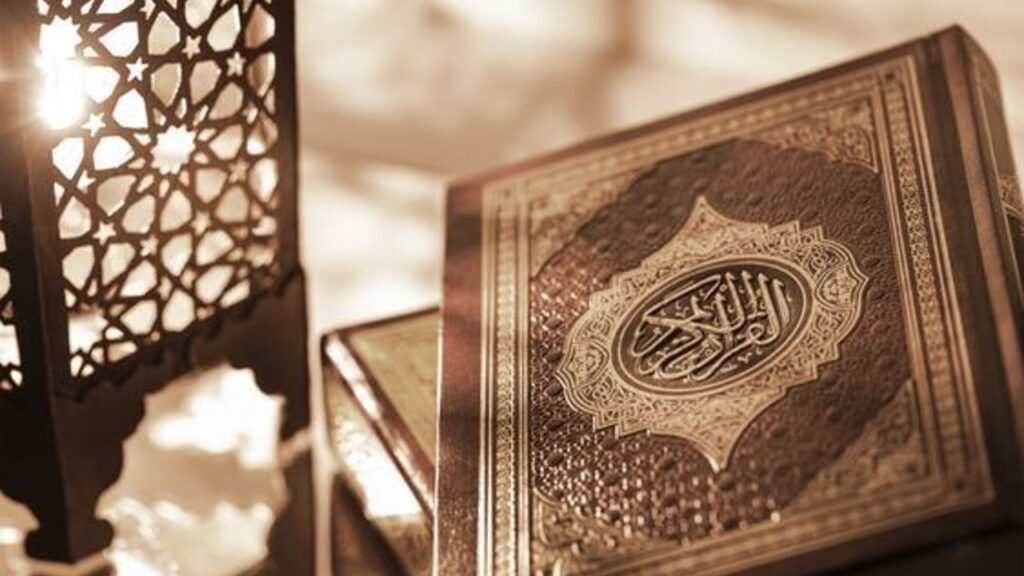Who wrote the Quran? The Quran is one of the essential Islamic books, has Eight hundred forty-eight p.m., and comprises seventy-seven thousand nine hundred thirty-four words in the Arabic language. By every measure, this is a formidable work. But our principal question here is Who is the author, then?
Who wrote the Quran?
The Quran is a direct revelation from God, according to Islam.
What proof do we have to back up this claim?
How can it be believed to be true?
Let’s know all of that and more by reading this topic.
The Quran is a book of divine revelations that the Angel Gabriel revealed to the Muslim Prophet Muhammad.
This is the principal Islamic sacred literature and possibly the best written in the Arabic language.
It is also known as the Qur’an or Koran.
The term “Qur’an” literally means “recitation.”
Over 23 years, the Angel Gabriel delivered the Koran to Muhammad.
The Koran follows Noah’s, Abraham’s, David’s, Moses’, and Jesus’ proselytism and enlightenment.
According to the Koran, obeying God leads to heaven, whereas disobedience leads to eternal damnation.
The Koran and the Bible have numerous parallels in the historical events they recount, yet their interpretations may differ significantly.
Only Arabic should be used during Muslim prayer time to recite the Koran.
What is the book of the Holy Quran?

In light of the talk about who wrote the Quran? We have to realize several important things.
The Quran, sometimes romanized as Qur’an or Koran, is the central sacred scripture of Islam, which Muslims consider to be a revelation from God (Allah).
It is generally regarded as the most critical work of classical Arabic literature.
The book is split into chapters of 114, each of which includes verses.
Muslims believe that God verbally revealed the Quran to the last Prophet, Muhammad, through the archangel Gabriel (Jibril), for 23 years, commencing in the month of Ramadan when Muhammad was 40 and concluding in the year of Muhammad’s death, 632.
Muslims believe the Quran as the greatest miracle, a proof of his prophethood; the culmination of a series of divine teachings, beginning with the instructions that were given to Adam Adam, including Adam, including the Tawrah (Torah) Adam, as well as Adam, including the Tawrah (Torah) and Injil (Gospel).
The word Quran is mentioned in the Quran book more than 70 times.
Other terms and names are believed to be related to the Quran too.
Who wrote the Quran? Muhammad’s Revelations
In a cave named “Hira,” the Prophet Muhammad has received the Koran’s teachings.
This cave is roughly 2 kilometers outside of Mecca, Saudi Arabia.
Even though the cave attracts numerous Muslims.
It is not considered part of the Hajj pilgrimage path, even though it receives an estimated 5,000 daily visits during the Hajj season.
After he and his companions immigrated to Medina, Muhammad discovered the cave.
Muhammad taught the Koran to his companions as it was revealed to him.
He urged them to propagate God’s rules, eventually inscribed on palm fronds, bones, and tablets.
As a result, many Muslims at the time only knew a few chapters of the Koran rather than the entire revelation as we know it today.
Compilation of the Revelations in Written Form
In the year 655, the scribes of the year 655 led by Zayd Ibn Thabit determined to synthesize all the Islamic teachings of Muhammad into their various forms.
Thabit and his colleagues ultimately succeeded with the aid of other scribes.
They could compile a complete handwritten version of the Prophet Muhammad’s spoken teachings.
And in the context of also talking about who wrote the Quran?
The Koran was guarded by Abu Bakr, the first Caliph (primary Islamic leader).
It was passed down to Muhammad’s wife after his death.
After noticing some minor discrepancies in phrasing and pronunciations, the third Caliph, Uthman ibn Affan, commissioned another version, which Zayd ibn Thabit also collected, to create a standard version.
Even though modern Muslim academics agree that the current Koran is the edition commissioned by Abu Bakr, the third Caliph ordered the original text.
However, other sources claim that Ali ibn Abi Talib, a Shi’a Muslim, gathered a chronological version of the Koran shortly after Muhammad’s death in the year 661.
On the other hand, the third Caliph regarded the chronological account as legitimate and truthful.
Who wrote the Quran, and What is the significance of the Quran?
Who wrote the Quran? – Muslims believe the Quran is significant because it is a Divine revelation, meaning that the angel Gabriel delivered the book from God to the last Prophet, Muhammad (peace be upon him).
The Quran is God’s word and Divine counsel for humanity. Muslims believe that the Quran holds enormous weight and impact since it is the message of the Supreme Lord.
The laws it establishes are how one might obtain Allah’s pleasure and paradise.
The Majestic Quran has seven unique traits and benefits that make it a unique and essential book:
- The Quran describes what life is all about.
- The Oneness of Allah is taught throughout the Quran.
- Moral, social, and spiritual principles are trained in the Quran.
- The Prophet is portrayed in the Quran as the ideal role model.
- Prophecies in the Quran.
- The influence of Quranic teachings in daily life.
Who wrote the Quran?: Conclusion
To summarize our principle topic about Who wrote the Quran? the Quran is the most important scripture in the world for Muslims everywhere.
It provides Muslims with instructions and directions on how to live their life.
Even though the Quran is neither a book of science nor medicine, it does provide spiritual and physical advice.
Learning God’s instructions and memorizing Quran verses will help us live an active and healthy life.
The Quran’s commands are robust, and they can withstand any logical or scientific analysis.
It is reasonable and scientific in every way, from its historical descriptions to its moral precepts.
There are several indicators that the Majestic Quran is Divine in character.
Wanna learn Quran online? Join The Quran courses Academy and get 2 FREE trial classes now



